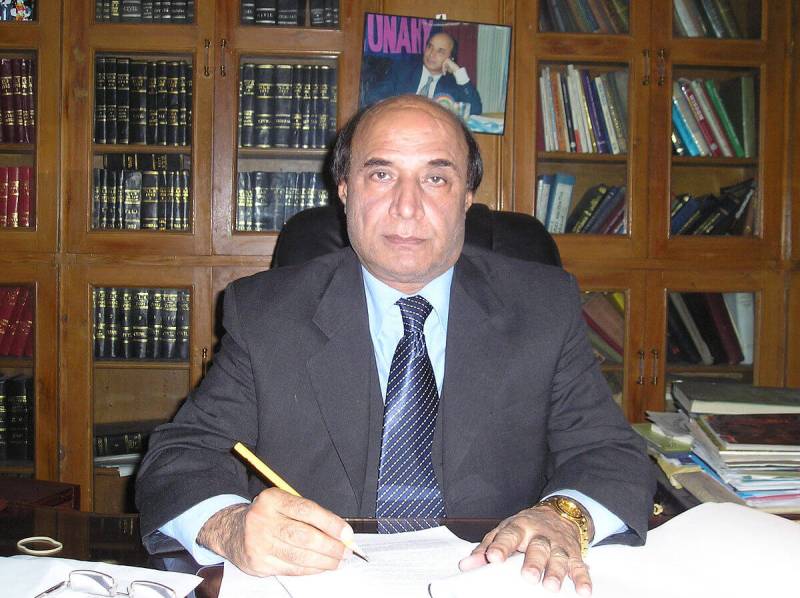
Former prime minister and Pakistan Tehreek-e-Insaf (PTI) Chairman Imran Khan's lawyer Sardar Latif Khosa on Monday claimed that the cricketer turned politician was being slowly poisoned while incarcerated in Adiala Jail.
He made the claim while appearing in the Islamabad High Court (IHC) on Monday in an appeal against the verdict of a district court over a criminal case against Imran in the Toshakhana issue.
Before going into the courthouse, Khosa briefly spoke to the media and claimed that "slow poison" was being administered to Imran in jail and that they had serious reservations over the safety of Imran Khan and his health in jail.
He added that the issue was raised before the court and that the IHC chief justice sought all relevant records.
Khosa said that they had demanded that the IHC chief justice obtain guarantees from the state on protecting Imran's life before them.
Asked about Imran Khan's impending indictment in the cipher case, Khosa questioned on what grounds the court would indict Imran Khan.
"What crime has Imran Khan committed?" he asked, adding that British Colonisers had created the Official Secrets Act to keep the colonised oppressed.
"We want to escape the servitude of the British only to accept Americans as our new masters?" Khosa asked.
He added that this is a matter of respect and sovereignty of a nation of 240 million strong.
He reiterated how threats from an American diplomat prompted a change in premiership in Pakistan.
Meanwhile, in the Islamabad High Court, a divisional bench comprising Chief Justice Aamer Farooq and Babar Sattar reserved the verdict on Imran's plea to suspend the verdict given by a lower court in the Toshakhana criminal case.
As part of the case, Imran Khan's legal team had filed a request to include the state as a party to the case. To this, the court said that objections were raised and that a responsible and appropriate order would be given after reviewing the matter.
CJ Farooq further asked Khosa to cite any other case where such a request had been granted and the argument for allowing such a request.
When his lawyers started to cite the cases verbally, Justice Farooq asked them to submit them in writing together with arguments for why they were valid references.

